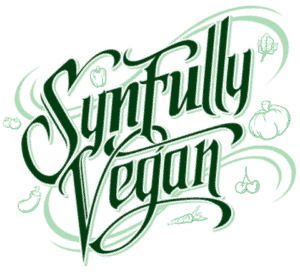Gas formation occurs mainly from the fact that fiber is broken down in the intestine. The positive side of this process is the fact that gassing is a healthy phenomenon. It helps protect the gut from the formation of cancerous cells and promotes the growth of beneficial bacteria, which in turn helps maintain regular bowel movements and fight infections.
The downside is, vegans are more likely to suffer from bloating than other types of diets. However, that over time, most vegans will adapt and produce less gas. The experts came to the conclusion: food lovers of plant origin suffer from a lack of vitamins B12 and D. These vitamins are not found in plant foods, but are present in small amounts in milk and eggs.
The Main Causes Of Bloating
The first is increased swallowing of air during fast food or drink, drinking carbonated drinks, chewing gum or sucking hard candy, swallowing more often due to nervous tension or constant drainage of mucus from the nasal cavity along the back of the pharynx (postnasal syndrome).
Therefore, it is necessary to chew food slowly and slowly in a calm and relaxed state. You should also minimize the use of gum, carbonated drinks.
The second is food intolerance. In some people, vegetables are poorly absorbed in the small intestine. In the intestine, that part of them that has not been absorbed is quickly digested by bacteria. This leads to an influx of liquid and the formation of an excess amount of gas, which causes stretching of the intestine, a violation of its peristalsis. As a result, we feel bloating.
Popular Vegan Food Causing Bloating
Beans
Beans are rich in protein, carbohydrates, fiber, vitamins and minerals and are part of a healthy diet. However, due to their high fiber and oligosaccharide content, they provoke bloating. To avoid this condition, preference should be given to varieties that are easier to digest, such as adzuki, mung bean (mung beans), lentils, quinoa, etc.
Wheat
Wheat contains a protein called gluten, which can cause bloating, gas, stomach pain, and diarrhea in some people. Bread, pasta, and many baked goods contain gluten. Gluten (gluten) sensitivity can be caused by a condition called celiac disease.
Rye and barley
Both grains are nutritious, high in fiber, and full of vitamins and minerals. However, their high fiber and gluten content can cause bloating in some people. You can replace rye and barley with other grains, such as oats and brown rice, or gluten-free counterparts.
Onions & garlic
Onions contain fructans, a soluble fiber that can cause bloating. Fructans are also found in garlic, leeks, agave, wheat, and a number of other foods. Even in small amounts, onions and garlic can cause bloating and other digestive problems.
Some people may be allergic to garlic or onions, further increasing the likelihood of bloating, belching, or pain after consuming them.
Make sure to check out my article on Sattvic diets which is all about eliminating foods like onions and garlic to balance your body.
Cruciferous vegetables
Cruciferous vegetables include cauliflower, broccoli, Brussels sprouts, watercress and many more. These are foods that contain many essential and beneficial nutrients, including vitamins C and K, fiber, and potassium. However, they can cause some unwanted symptoms of the digestive system, including bloating.
Cooking cruciferous vegetables makes them easier to digest. Alternatively, people can replace them with other healthy vegetables that are equally rich in vitamins and minerals but won’t cause bloating.
Non-nutritive sweeteners
Non-nutritive sweeteners or artificial sweeteners replace sugar in sugary drinks, foods, and chewing gum. These include, in particular, sorbitol and xylitol. These sweeteners have no nutritional value and are not desirable for use.
Research from BMC Obesity has linked these sweeteners to unhealthy lifestyles, poor eating habits, and declining physical and mental health. Additionally, non-nutritive sweeteners can cause digestive problems, including gas and bloating. Healthy alternatives to artificial sweeteners and refined and processed sugars include raw honey, stevia, coconut sugar, cinnamon, nutmeg, licorice, and vanilla.
Apples and pears
Apples and pears are popular fruits that are high in fiber, vitamins, and antioxidants. They are also known to cause bloating and digestive problems. This is due to the fructose they contain, a fruit sugar that is difficult for many people to digest. Pears contain sorbitol, which can cause significant bloating in some people.
Cooked apples and pears are easier to digest than fresh ones. People can also replace these fruits in their diets with others that are less likely to cause bloating.
Vegans & Bloating
Many freshly baked vegans who enthusiastically lay vegetables and whole grains on their plates often face delicate issues like bloating, gas, or other stomach upsets. Faced with such a reaction of the body, many are alarmed and mistakenly think that they have food allergies or that a plant-based diet is not suitable for them. The secret is to transition to a plant-based diet more smoothly – and chances are your body will adapt perfectly to a vegan diet.
Even if you love the vegetables, legumes, and whole grains that form the basis of a plant-based diet, take your time. Do not overeat, and watch what you eat and how your body reacts to each food.
Several cooking options and the right approach to food choices can make digestion easier. Here’s a look at the major food groups and common digestive problems they can cause in vegans, as well as some simple solutions.
Legumes
Problem
Legumes can cause stomach discomfort and gas. The reason is in the carbohydrates they contain: when they enter the large intestine in an incompletely digested state, there they finally break down, resulting in a side effect – gases.
Decision
First and foremost, make sure your beans are cooked properly. The beans should be soft on the inside – the harder they are, the harder they are to digest.
Rinsing the beans after soaking, just before cooking, also helps to get rid of some indigestible elements. Skim off any foam that forms on the surface of the water during cooking. If you are using canned beans, also rinse them before using.
Fruits and vegetables
Problem
Digestive problems can be caused by the acid found in citrus fruits, melons, apples and some other fruits. Meanwhile, vegetables such as broccoli and cauliflower can also trigger gas.
Decision
Eat fruits only with other foods and make sure they are ripe. Unripe fruits contain indigestible carbohydrates. Beware of dried fruits – they can work as a laxative. Limit your portions and slowly add dried fruit to your diet, paying attention to the feeling in your gut.
For healthy, but gas-forming vegetables, include in your diet, but combine with other, less gas-forming vegetables.
Whole grains
Problem
Eating large amounts of whole grains can cause digestive discomfort because the outer coatings are hard to digest.
Decision
Introduce whole grains into your diet in small portions and start with more delicate varieties, such as brown rice, which is not as high in fiber as, say, wheat grains. Boil whole grains thoroughly, and also try to use whole grain flour in your baked goods. Whole wheat is easier to digest when it is milled.
How To Reduce Your Gas While On Vegan Diet
You may not be able to completely eliminate these sensations (regardless of your diet), but there are several methods that can help reduce gas production:
- Swallowing air can cause bloating in the stomach and intestines. To reduce the amount of air you swallow, chew and swallow food slowly and sip your drinks. Avoid carbonated drinks. Chewing gum or drinking candy can also increase the amount of air you swallow.
- Some foods produce more gas than others. For example, cabbage tends to produce more gas than carrots. Watch for foods that trigger this reaction and change your diet accordingly.
- Generally, small legumes (lentils, crushed peas) have a weaker blowing effect than large legumes (lima beans). Therefore, it is worth more often to cook dishes with small legumes.
- If you are using canned beans, rinse them well before eating.
- If you are cooking dry beans, leave them to soak overnight, then rinse thoroughly and rinse them several times during cooking. This will help get rid of more oligosaccharides. Also, the longer you cook the beans (with rinsing), the better.
- It is better to eat several times a day, little by little, than two or three times, but in large portions. Avoid overeating.
- For situations where your digestive system needs extra support, try Bean-zyme, which is the vegan version of Beano.

